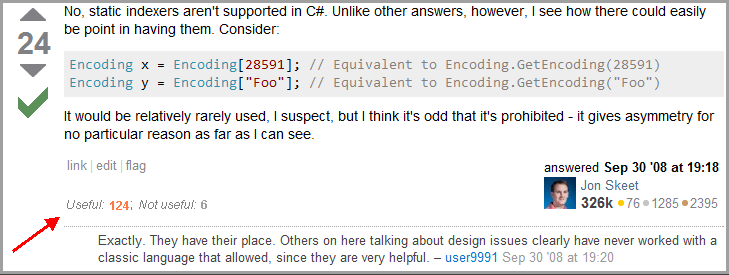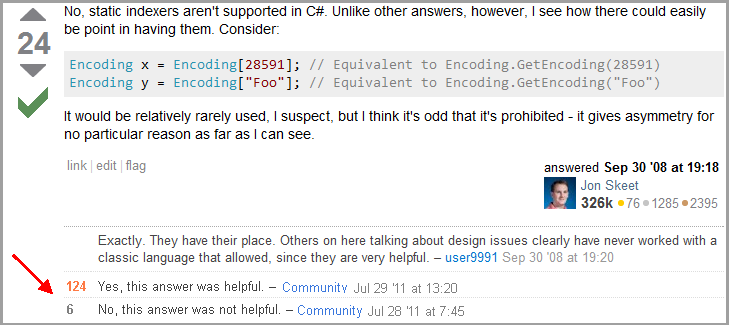I deployed some basic reporting on the anon and low rep post feedback:
https://stackoverflow.com/tools/post-feedback (10k users only)
Turns out this system is really effective at getting feedback about the long tail.
On average feedback is left on posts that are 6 months older than the posts being voted on.
The reporting has highlighted areas where there is information rot, for example these questions contain old unhelpful content that people stopped voting on:
- When should I use a struct instead of a class?
- Response.Redirect to new window
- What is the basic difference between the Factory and Abstract Factory Patterns?
- How to get current datetime on Windows command line, in a suitable format for using in a filename?
- How can I reverse the ON bits in a byte?
- CSS background color in JavaScript
Here are some questions containing apparently helpful information, that people stopped voting on:
- What is a privileged instruction?
- How to temporarily disable a message listener
- https://stackoverflow.com/questions/970121/are-these-good-interview-questions-for-flex-developer
- Is a JOIN faster than a WHERE?
- How to group by week in MySQL?
Looking through these question lists it is pretty clear that we need a strategy to deal with high value content that has been either "abandoned" or "neglected".
Over a question's lifetime it attracts many answers and the answers attract many comments. This makes it way harder for an end user to decipher what the solution to the problem is.
Now that we have some pretty good ways to isolate high value questions, what can we do to shape them up?
Do we need new site features to deal directly with this problem? (EG. edit bounty/edit voting)



